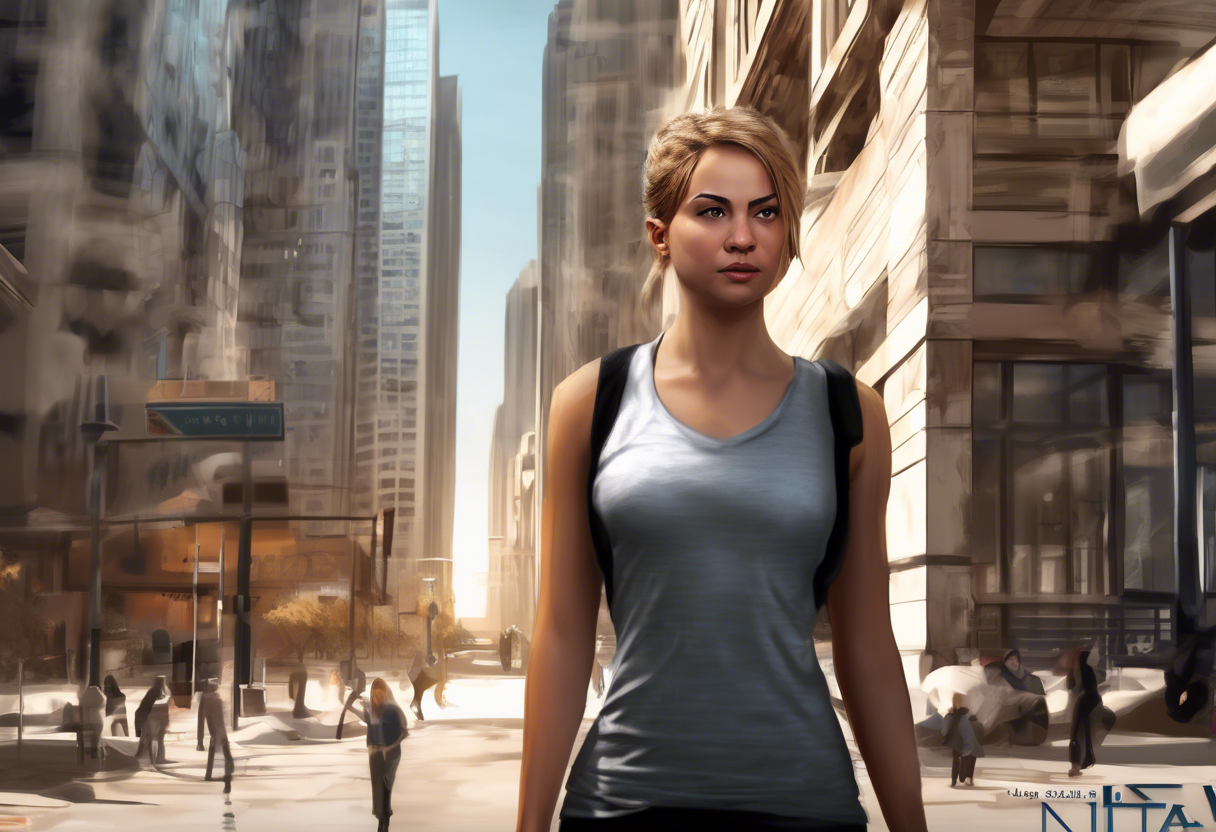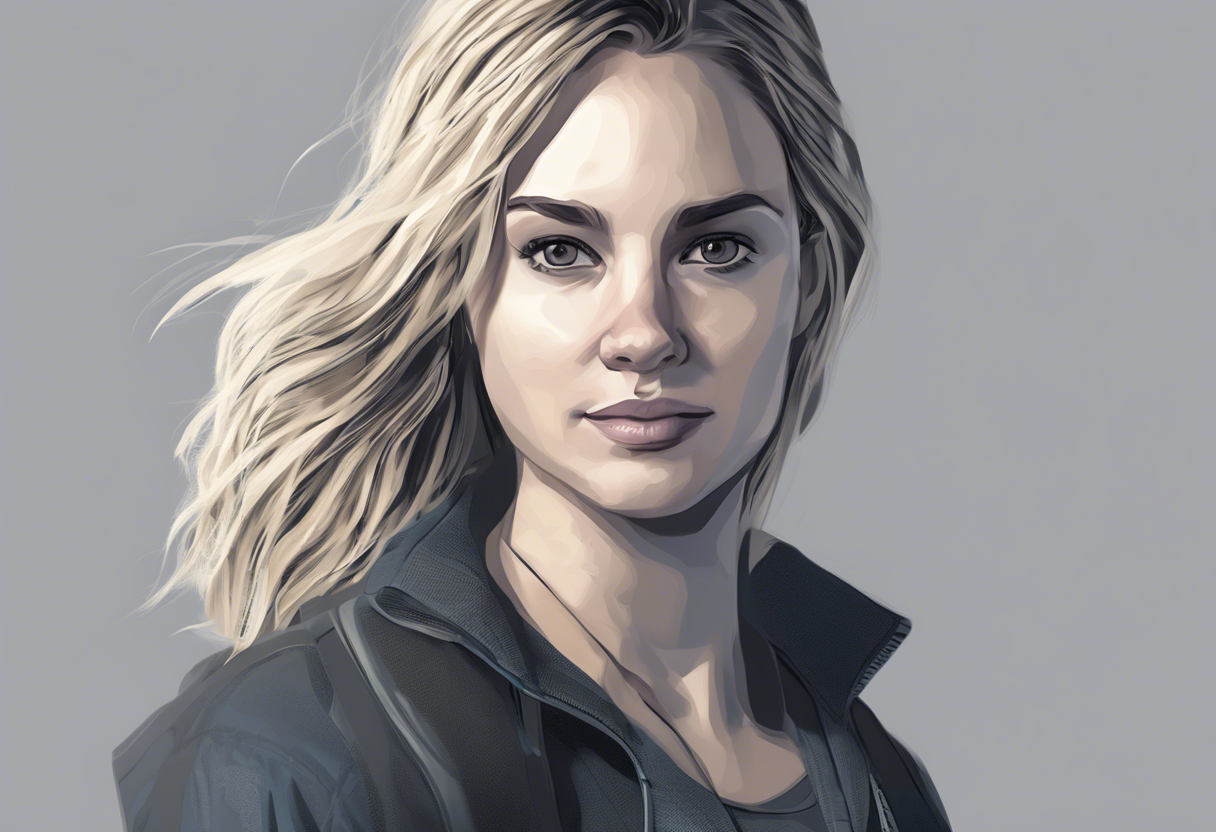Contents
Nita: The Complex and Enigmatic Character of the Divergent Series
Introduction
Nita is a significant character introduced in the final book of the Divergent series, "Allegiant," by Veronica Roth. She is a genetically damaged (GD) individual who plays a crucial role in the narrative, particularly in the rebellion against the genetically pure (GP) leaders of the Bureau. Nita’s origins and backstory are deeply intertwined with the broader themes of genetic manipulation, social hierarchy, and rebellion that are central to the series.
Born outside the walled city of Chicago, Nita is part of an experiment sanctioned by the US government aimed at producing genetically pure "Divergents" from a genetically damaged population. Her involvement with the Bureau and her subsequent actions highlight the complexities of the genetic divide and the social tensions it creates.
Nita’s character is notable for her role in challenging the status quo and pushing the main characters, particularly Four (Tobias) and Tris, to confront the harsh realities of their world. Her presence also adds depth to the discussion of genetic purity, free will, and the consequences of scientific experimentation on human society.
Role in the Story
Nita’s storyline is pivotal in "Allegiant" as she becomes a key figure in the rebellion against the GP staff of the Bureau. She meets Four secretly, revealing her involvement in a GD uprising and her plan to break into a top-security vault to obtain memory serum. This serum is crucial because it can erase memories, a tool that the Bureau intends to use to control the population[5].
Nita’s relationship with Four is complex and fraught with tension. She convinces him to join her in the rebellion, despite Tris’s suspicions about her motives. This dynamic creates a rift between Four and Tris, highlighting the trust issues and conflicts that arise when characters are faced with difficult choices and uncertain alliances[5].
One of the major decisions Nita makes is to involve Four in her plan to access the Weapon Room, which ultimately leads to a bomb being set off, causing Uriah to be brain-damaged. This event is a turning point in the story, as it escalates the conflict and forces the characters to confront the severe consequences of their actions[2].
Nita’s actions also reveal the deeper issues within the Bureau, such as the mistreatment of GD individuals and the ethical dilemmas surrounding genetic manipulation. Her rebellion is not just against the GP leaders but also against the systemic injustices that have been perpetuated by the Bureau.
Character Analysis
Nita’s personality is marked by her determination and resilience. She is driven by a strong sense of justice and a desire to challenge the oppressive regime of the Bureau. Her motivations are rooted in her experiences as a GD individual, facing discrimination and marginalization within the society controlled by the GPs.
Despite her strong convictions, Nita is also portrayed as somewhat manipulative and calculating. She uses her charm and intelligence to influence Four and draw him into her rebellion, which raises questions about her true intentions and the morality of her actions[4].
One of Nita’s significant strengths is her ability to navigate the complex web of alliances and rivalries within the Bureau. She is resourceful and strategic, often staying one step ahead of her adversaries. However, this also makes her a somewhat enigmatic figure, as her true loyalties and motivations are not always clear.
Nita’s flaws include her willingness to use extreme measures to achieve her goals, which can lead to unintended and harmful consequences. Her actions, while driven by a desire for justice, often blur the lines between right and wrong, making her a morally ambiguous character.
Throughout the story, Nita’s character undergoes significant development as her interactions with other characters reveal more about her backstory and motivations. Her relationship with Four, in particular, highlights the personal costs of her actions and the emotional toll of her rebellion.
Themes and Symbolism
Nita embodies several key themes of the Divergent series, including the struggle for identity, the consequences of genetic manipulation, and the power of rebellion against oppressive regimes. Her character symbolizes the resistance against a system that devalues and marginalizes certain groups based on genetic criteria.
The theme of genetic purity versus genetic damage is central to Nita’s storyline. Her actions challenge the notion that genetic purity is superior and highlight the injustices faced by GD individuals. This theme is symbolic of broader societal issues, such as racism, classism, and other forms of discrimination based on perceived differences.
Nita’s rebellion also symbolizes the fight for free will and autonomy in a society heavily controlled by external forces. Her actions, though sometimes controversial, represent a desire for self-determination and the right to live without the constraints of a genetically engineered society.
Cultural Impact
Nita’s character has had a significant impact on the cultural landscape of the Divergent series. Her introduction in "Allegiant" added a new layer of complexity to the narrative, exploring themes that resonated with readers and sparked important discussions about genetic ethics and social justice.
In terms of fan reception, Nita has been a polarizing figure. Some fans appreciate her bold and determined nature, while others criticize her manipulative tactics and the harm caused by her actions. This mixed reception reflects the complexity of her character and the nuanced themes she represents[4].
Nita has not been directly portrayed in any film adaptations of the series, as the movie franchise did not proceed beyond the third book. However, her influence can be seen in the broader discussion of genetic ethics and rebellion in popular culture, particularly in young adult dystopian literature.
Critical Reception
Critics and audiences have had varied reactions to Nita’s character. Some have praised her as a strong and compelling figure who adds depth to the narrative, while others have criticized her as a plot device or a character with unclear motivations[4].
The controversy surrounding Nita’s actions, particularly her role in Uriah’s injury, has been a point of discussion among critics. Some argue that her methods are too extreme and morally questionable, while others see her as a necessary force for change in a deeply flawed system[2].
Overall, Nita’s reception reflects the complex and often divisive nature of her character, which is a hallmark of well-crafted and thought-provoking literature.
Legacy
Nita’s enduring appeal lies in her representation of resistance and rebellion against oppressive systems. Her character has inspired discussions about genetic ethics, social justice, and the importance of challenging systemic injustices.
In contemporary discussions, Nita’s character remains relevant as a symbol of the ongoing struggle for equality and the fight against discrimination. Her story serves as a reminder of the importance of empathy, understanding, and the need to challenge societal norms that perpetuate inequality.
Nita’s influence can also be seen in other works of dystopian literature and media, where characters who challenge the status quo and fight for justice are often central to the narrative. Her legacy is one of inspiring readers to think critically about the world around them and to stand up against injustice.
References
- https://en.wikipedia.org/wiki/List_of_Divergent_characters
- https://en.wikipedia.org/wiki/Allegiant_(novel)
- https://rachelstaffordportfolio.weebly.com/characters.html
- http://reviewsfromabookworm.blogspot.com/2013/10/allegiant-by-veronica-roth-divergent-3_30.html
- https://amandanerd.wordpress.com/2014/04/10/allegiant-veronica-roth/







